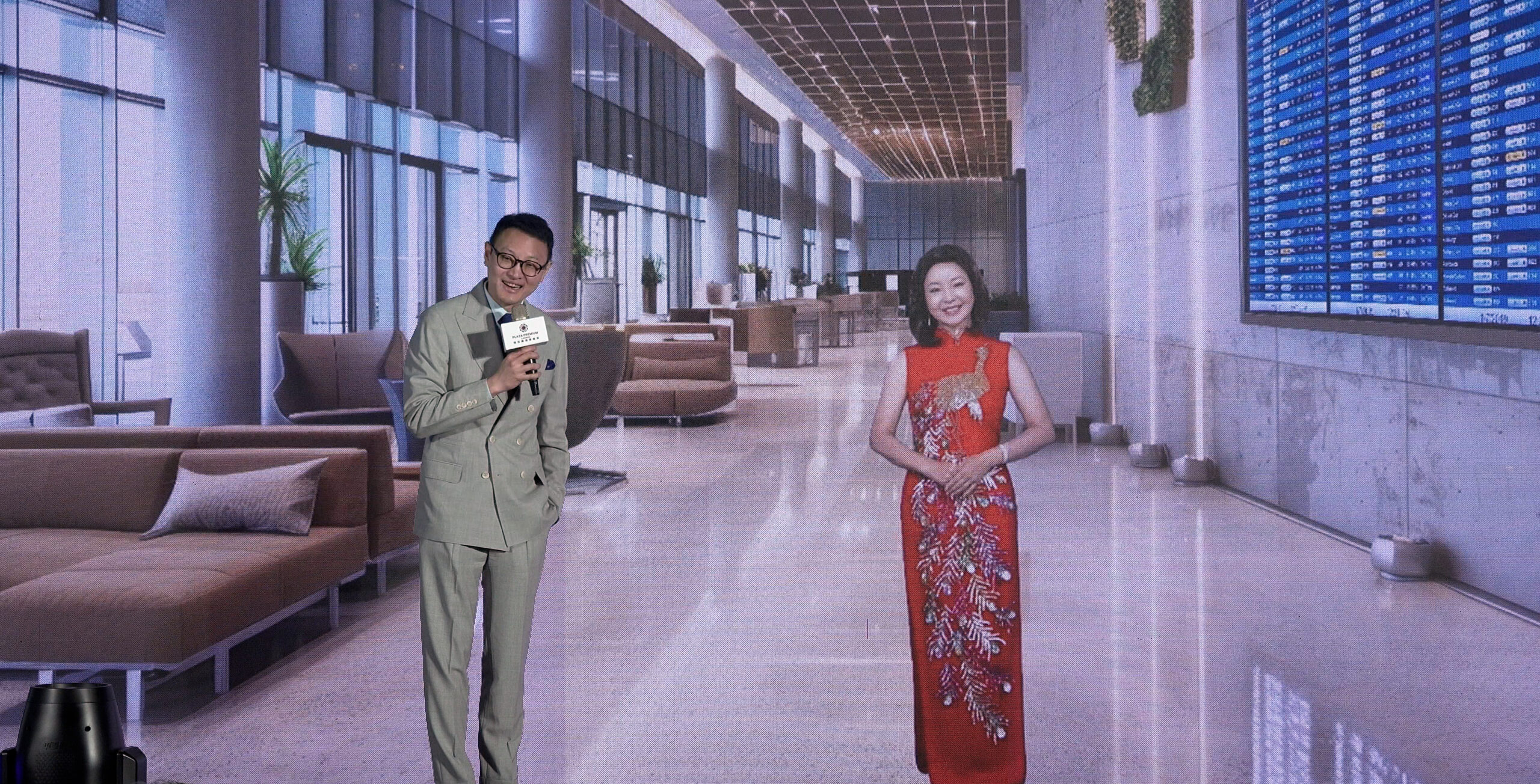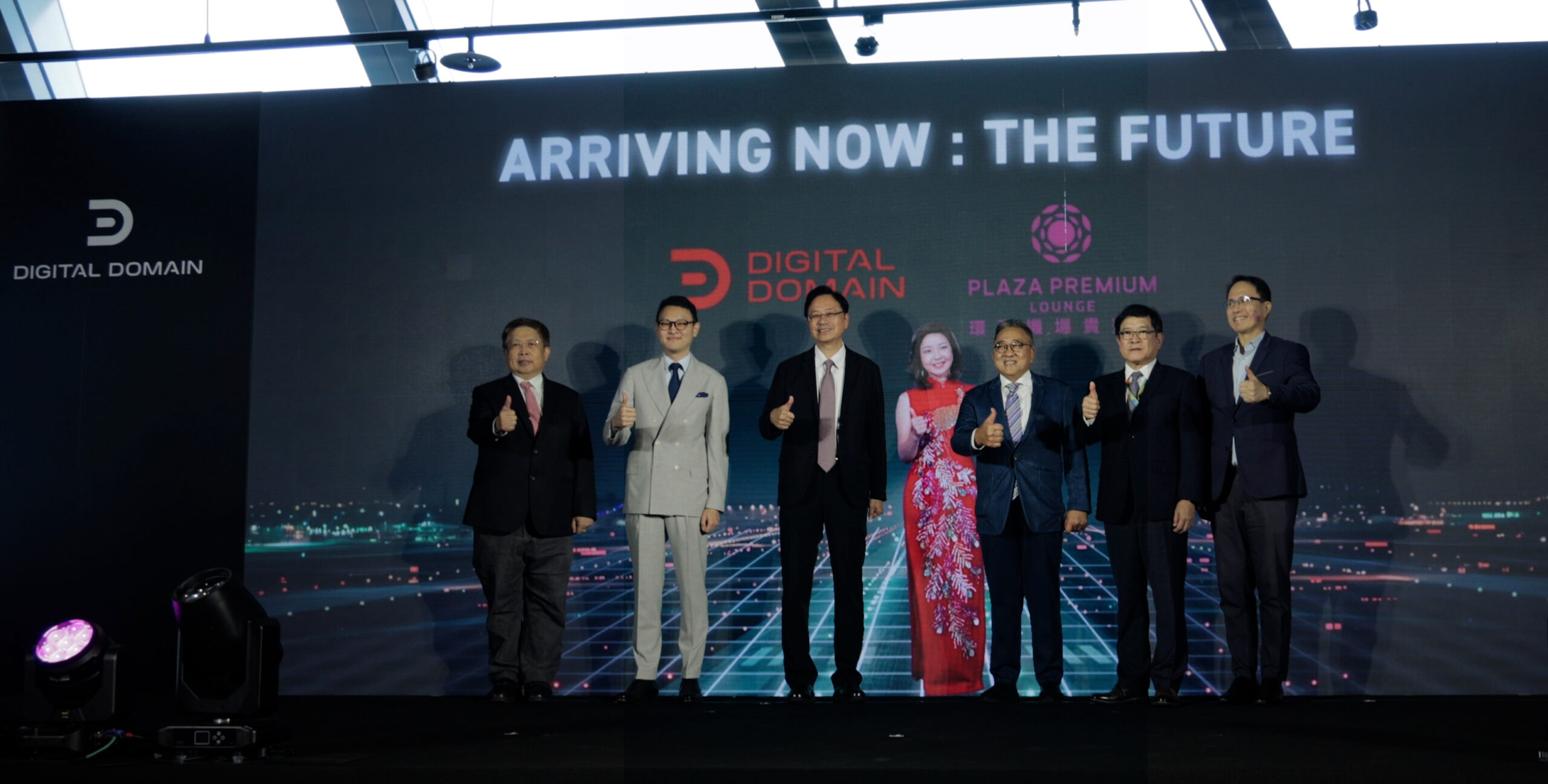Digital Domain has been entertaining audiences with its lifelike human characters—from Tupac and Martin Luther King to Joe Montana, David Beckham, and others—for movies, commercials, concerts, and special projects. For years, the studio’s Digital Human Group has been perfecting the process, using state-of-the-art technology, including machine learning and artificial intelligence. They have raised the bar, creating digital humans that are photorealistic as well as autonomous, able to respond appropriately and naturally thanks to additional tech developments including camera tracking and AI text to speech.
Now, Digital Domain is introducing its development in this area outside of the entertainment realm. The studio’s digital human technology, through a partnership with a visionary in the global airport and travel hospitality industry, will be used for digital human hospitality services in the form of informational kiosks featuring a realistic digital human. The partnership was announced at Taoyuan Airport, where kiosks will be installed. No time frame for launch has been given. Digital Domain is in the process of readying the application.
What do we think? I have been impressed with the progress made by Digital Domain and others working on realistic-looking autonomous digital humans. (Another working in this area is Mark Sagar, co-founder and chief scientific officer of Soul Machines/director of the Laboratory for Animate Technologies at the Auckland Bioengineering Institute, who will be a keynote speaker at this year’s Siggraph.) We’ve already seen a glimpse of how some of this technology can be used, but for the most part, it’s been entertainment-related. Despite this, many on the forefront of this tech have been looking beyond that, citing informational kiosks as one possible commercial application. It looks like that day is landing soon.
Hollywood digital human tech arriving at airport
Digital Domain has been advancing digital human technology for years. They proved themselves as a go-to Hollywood studio for creating realistic digital humans for the big screen, including the lead character in The Curious Case of Benjamin Button back in 2008. Since then, the facility has digitally brought some well-known people back to life for various types of appearances, and has aged or de-aged others. The studio’s mixed team of creatives and technicians, known as the Digital Human Group (DHG), continues cutting-edge research and development in this area, devising various techniques and new tools. These include Digital Domain’s Masquerade markerless facial capture system and Charlatan face-swapping tech, which leverages machine learning.

Using its proprietary technology, along with other available tech, Digital Domain has created memorable holograms, including one of deceased Taiwanese pop icon Teresa Teng, who was resurrected for various performances—during concerts with Jay Chou (2013) in Taiwan and Hong Kong, and then with Charlie Zhou (2022) for a New Year concert in China. And, it would not be the last time a virtual Teng would be seen, and heard. Earlier, Digital Domain Holdings had signed a 10-year agreement with TNT Productions to produce 3D virtual performance holograms of the singer for concerts, movies, and other media. In 2018, she was a showstopper during a fully holographic concert in Hangzhou, China.
Recently, Teng made a surprise appearance in Taipei at Taoyuan International Airport. This time it was for a demonstration of sorts during a press conference to illustrate the Next Frontier in Travel, as the event was called. The purpose was to announce a commercial joint venture between Digital Domain Holdings and Plaza Premium Group’s CEO/Founder Song Hoi See for digital human hospitality services. The entities will offer intelligent, interactive, and highly personalized services to meet the various aspects of changing needs for modern travelers, Digital Domain stated.
Advancements in ML and AI have continued at record pace, and some innovators have applied the technology to create not just realistic digital humans, but real-time autonomous realistic digital humans. Digital Domain is one of the companies at the forefront of this movement, two years ago introducing Zoey, which built upon the studio’s work on Digital Douglas. She uses advanced technologies across the areas of artificial intelligence, machine learning, complex facial animation, text-to-speech tech, real-time rendering, and more as she engages in online face-to-face conversations. Like other groups working in this area, DHG’s goal was to continue developing these real-time autonomous digital humans for applications such as concierges at hotels and airports, virtual assistants, customer service reps, and so forth.
While Digital Domain’s expertise lies with the digital human technology, Song and his Plaza Premium Group company’s experience is within the hospitality and travel sectors. He and his team are based in Hong Kong and operate in more than 80 airports with 250-plus locations and have the largest independently run pay-in lounge operation in the world.
The new partnership will combine real-time digital human technology with traditional hospitality services. Through enhancement of the customer experience and operational efficiency, the joint venture will aim to create a seamless combination of digital innovation and personalized service across all hospitality sectors, the studio stated in a release. This could extend into the areas of travel, hotels, tourism offices, duty-free concessions, call centers, and more, according to Digital Domain.
To illustrate the technology at the heart of this partnership, the audience at the press conference was shown glimpse featuring an airport VIP lounge with a virtual ambassador informational kiosk like that envisioned as a result of this partnership. The kiosk’s virtual human, through the use of AI-related tech, would assist travelers by providing information such as Plaza Premium Lounge offerings on-site, route navigation, airport vicinity details, and so forth—all delivered in real time with appropriate responses and personable human-computer interaction.
Taoyuan city and airport officials were present at the event. According to Chang San-Cheng, mayor of Taoyuan City, this collaboration aims to enhance global awareness of Taoyuan International Airport using AI technology—for instance, by using virtual technology to showcase local celebrities welcoming guests at the concierge desk or re-create famous Taiwan attractions at the airport, thereby creating an immersive experience that leaves visitors with a deeper appreciation of Taiwan and the airport.
The appearance of the beloved superstar Teng (in virtual form) at the event alongside Digital Domain CEO Daniel Seah certainly captured the attention of many in the audience and left a powerful impression in this new proof of concept. Although it has not yet been determined who the digital human at the kiosks will be, Digital Domain said it will not be Teng.
Meanwhile, Digital Domain said it is refining its virtual human solutions technology for use at the smart kiosks. As of now, no official timeline for installation of the application has been worked out. It is also undetermined how many locations will feature the kiosks.
